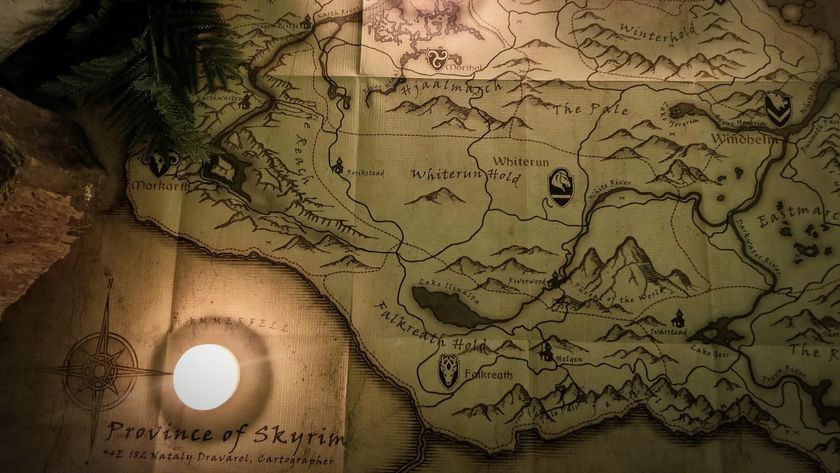Is Destiny worth $500 million? Let's put it in perspective
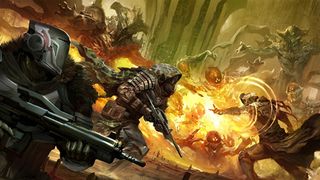
What does it mean?
Gaming news comes and goes, but the big stories deserve a little more background. That's the idea behind In Perspective, and we couldn't have asked for a better inaugural topic to explore than Activision announcing it planned to spend $500 million on Destiny, via CVG News.
That's a large sum of cash to just about anybody, but what is it to Activision? Why would such a notoriously cautious publisher drop so much cash on an unproven new license? Does it really expect to make all that cash back? The answers may surprise you. Unless you're Bobby Kotick.
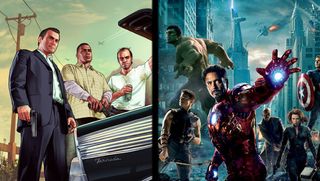
What's $500 million worth to Activision?
Activision plans to spend about $500 million starting Destiny with a bang, from development to marketing to the wages of the guys and/or gals who sticks instruction pamphlets into boxes. Let's cast proper writing style to the wind for a moment and give that figure the zeroes it deserves: Activision is spending $500,000,000 to kick off a video game series about magic space marines who wear capes and shoot aliens.
That's a little bit more than the budget for The Avengers and Grand Theft Auto 5 put together, which reportedly cost $225 million and $250 million respectively (if by a "little bit more" you mean "enough cash to construct and fill a money pool the envy of Scrooge McDuck"). But what does that actually mean for Activision?
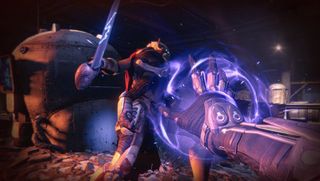
Is it only getting one game in return?
Before we begin dissecting the numbers, we should note that the $500 million is not meant just to create a single game. No, Bungie isn't planning on shipping Destiny Guardian Blue and Destiny Fallen Red (though if they announce that later you heard it here first), but it is making a legacy. Bungie's laid the heroic beginnings stuff on pretty thick in promoting Destiny, but it's even more accurate if you think about it in the context of the game as a product.
Destiny is the start of a new franchise for Activision, one that's going to persist for at least a couple games no matter how well the first one sells. Activision is looking at that $500 million more as venture capital than straight profit-expenditure. It's only the (very expensive) beginning.

How much money does Activision have?
Bobby Kotick's International House of Assault Rifle Skins reported that it had $13.5 billion in total assets as of March 31, 2014. Of that, $4.3 billion was in cash and cash equivalents--liquid funds it can access whenever the firm needs to order pizza or make a beer run or or hire Snoop Dogg or whatever. That means Activision is planning to spend a little more than a ninth of its total war chest on Destiny.
Activision--and more importantly, Activision's investors--have to be expecting equally huge profits right out of the gate to compensate for throwing that much cash into a project, right?

Can it be ever be profitable for Activision?
If you're really, really optimistic, it can be! Sterne Agee analyst Arvind Bhatia predicts that Activision would need to sell 15 to 16 million copies of Destiny at $60 a pop just to break even. Moving that massive number of units clearly isn't impossible; GTA 5 shipped 32.5 million copies as of February.
But that's GTA 5, the latest scion of a best-selling franchise which - predecessors aside--benefited from a half-decade of anticipation and adulation. That's GTA 5 which--until now--was thought to be the most expensive video game in history. Destiny is a new series with none of that attachment. It's from a beloved studio, sure, but there's no Master Chief or Cortana to pull in old fans here. Bhatia expects the game to sell around 8 million, which is still heart-stoppingly well for a new series, by the way.

Why would Activision spend so much money on something like this?
You can call Activision a lot of things, but you can't call it financially ignorant. The company knows full well that it's not going to make all its money back from Destiny alone. Even if it's a smash hit and people look back at this article in a year, sipping their Destiny Game Fuel and snorting at my ignorance, it still won't have been much more profitable than another Call of Duty.
But Call of Duty can't last forever. Cowen analyst Doug Creutz said in December that Ghosts' launch sales were down as much as 25 percent from Black Ops 2. Activision can't pin that big of a decline on the console transition. In a company that focuses "on doing a few things well", it's high time to make a seamless transition of market power to a new core gaming franchise. That's why it locked down a 10-year contract with Bungie in 2010.

What's $500 million worth to you?
Just because it's internally consistent for Activision to pour $500 million into Destiny, that doesn't mean it should seem sensible to normal human beings. That's enough to buy 833,472 original PlayStation 3s at five-hundred ninety nine US dollars, without even getting a second job. It's almost enough to buy the Los Angeles Clippers, if Activision doesn't mind dipping just $75 million deeper into its liquid assets.
It's also enough to buy 18.5 million copies of Minecraft for PC. Minecraft, which was started on a shoestring budget by a single Swede, has sold only 15 million PC copies in total (which, reminder, is about how many copies Destiny needs to sell to break even). That said, it's moved more than 12 million copies on Xbox 360 and 21 million on mobile devices. For reference, Mojang now employs about 40, and Bungie roughly 500.

What else?
That's how we see the situation. What about you? Is this the start of a glorious new chapter for Activision and Bungie? Have they bet the farm on an unproven concept? If you had $500 million, would you buy Destiny and keep it all to yourself while cackling madly? Let us know in the comments.
For more historical perspective on Destiny's $500 million, be sure to read our commentary. Interested in Activision's other big shooter? Make sure to check out everything we know about Call of Duty: Advanced Warfare.

I got a BA in journalism from Central Michigan University - though the best education I received there was from CM Life, its student-run newspaper. Long before that, I started pursuing my degree in video games by bugging my older brother to let me play Zelda on the Super Nintendo. I've previously been a news intern for GameSpot, a news writer for CVG, and now I'm a staff writer here at GamesRadar.
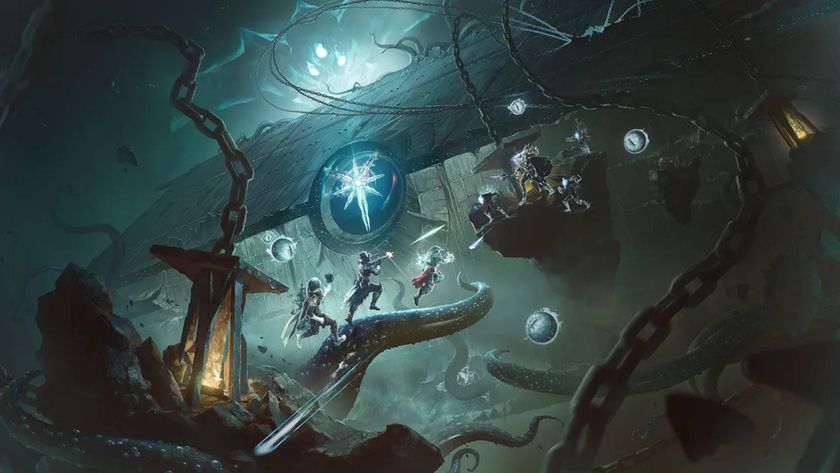
"A fun example of a bug becoming a feature": Destiny 2 accidentally made Exotic Glaives free to all classes, and Bungie says "we're going to let this ride"
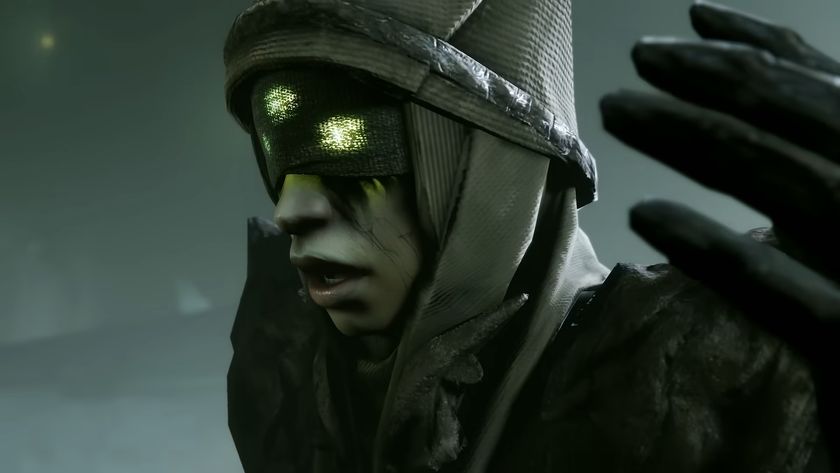
Destiny 2's new Episode suggested the upcoming Apollo expansion will launch on July 15, but that date has mysteriously been scrubbed from the game

"A fun example of a bug becoming a feature": Destiny 2 accidentally made Exotic Glaives free to all classes, and Bungie says "we're going to let this ride"

Destiny 2's new Episode suggested the upcoming Apollo expansion will launch on July 15, but that date has mysteriously been scrubbed from the game
Most Popular







